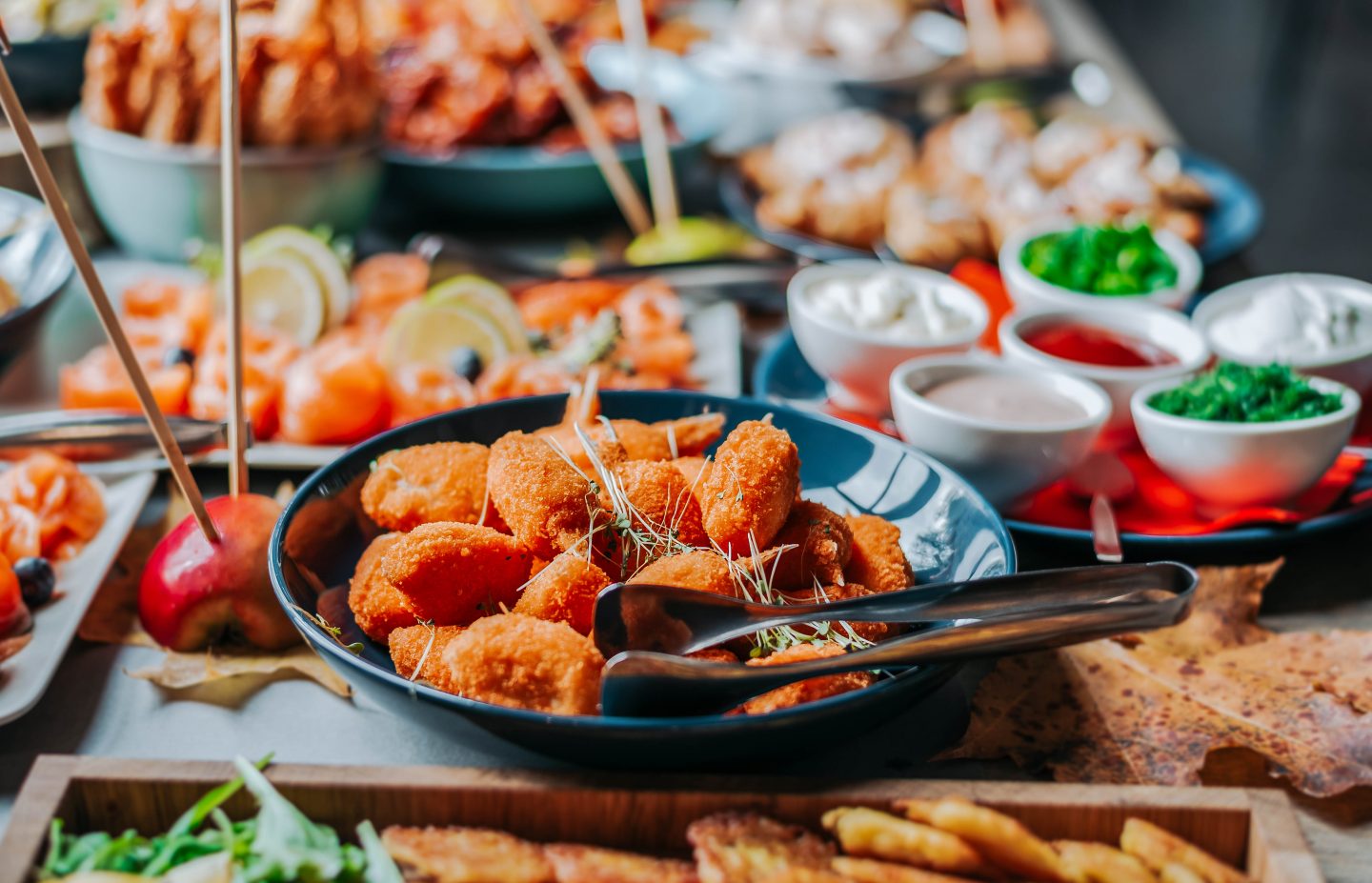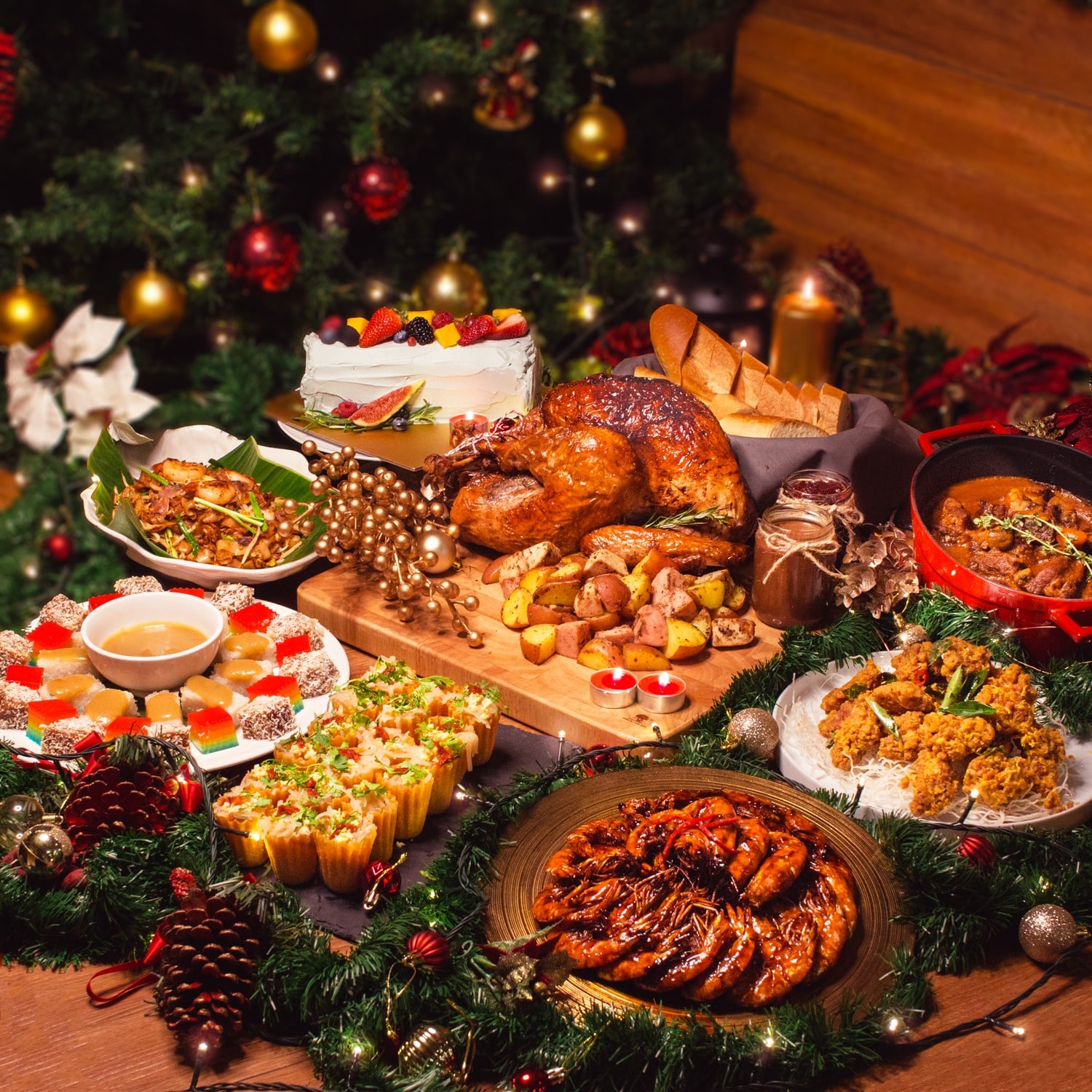
Photo by Marco Verch on Unsplash
Consider the following and if you do so, literally, it will become “food for thought”.
Best two words about food? “Eat up.”
Why do Christians above 50 years of age tend to be overweight? Blame it on their Sunday School song of days gone by – sung with unfettered and unknowing enthusiasm: “Feed me till I want no more.”
It’s not the economy, it’s the anatomy, stupid (with apologies to the Clintons) – apparently, “the stomach tells the head, five minutes too late”. We could all be trim, but for the unforgivably poor timing of the brain-stomach feedback loop.
And, yes, you shall know them by their food.
Therefore, we give thanks. Whether in plenty or scarcity. Whatever your taste.
Who else but the Filipinos can truly swallow balut (boiled shell-on duck embryos) and keep it down? The Taiwanese are peerless when it comes to “smelly doufu” (chou doufu). The Mexicans triumph with their escamoles, the larvae of ants, better known as “insect caviar”. What about the redoubtable Vegemite from Down Under (the unwitting Aussie reply to Marmite)?
The British show they are made of sterner stuff by naming their food “bangers and mash” and even “toad in the hole” (it probably helps take the mind off the food?).
And the Scots, ah, the Scots, are a class of their own with their haggis (that’s minced sheep innards, herbs and barley stuffed into a sheep stomach – enough said).
Eat up!
All about food
The Bible has quite a lot to say about food. You would expect that, wouldn’t you?
To eat in community is shared joy and doubled happiness. Even our Lord Jesus appreciated this during His sojourn on earth.
The apostle Paul pointed out to Timothy, in the midst of his warning about some who will depart from the faith, that there are “…foods that God created to be received with thanksgiving by those who believe and know the truth”, reminding him to put his hope “… in God, who richly provides us with everything to enjoy.” (1 Timothy 4:3, 6:17)
Therefore, we give thanks. Whether in plenty or scarcity. Whatever your taste. Be your bowl or plate full of rice or potatoes. (And always, lots of veggies – they were originally meant to be eaten and not just looked on or poked at.)
And food is best enjoyed in company, with family and friends (and even strangers). There’s nothing wrong with eating alone, but to eat in community is shared joy and doubled happiness. Even our Lord Jesus appreciated this during His sojourn on earth.
Food (and drink) builds a certain camaraderie, a bond helpfully enabled by sharing a meal, in unhurried time and unfeigned fellowship.
Of chicken-wallas and Big Macs: A missionary gives glimpses of life far from home
Rules of food engagement
Which brings us to the inevitable question: Besides the “forbidden fruit”, would there also be any “forbidden food”?
Greg Outlaw, CEO and representative of All About God Ministries, offers a quick summary:
But food which should unite us can also divide.
“At times, however, God has changed the rules about eating. Adam and Eve were vegetarians (Genesis 1:29-30). Later, God told Noah he could also eat any animal, but not blood (Genesis 9:3-4). Later still, through Moses God gave very strict dietary regulations to the nation of Israel. That helped make them distinct as His special people.
But God also intended that those religious laws create certain problems. He wanted the Israelites to learn that no one was perfect – that no one could do all God required (Acts 15:10; Galatians 4:1-5:3). Later, when Jesus lived on earth, He once again declared that any food could be eaten without fear of breaking God’s rules. (Mark 7:18-23).
To reinforce that teaching, God gave a special vision to Peter, using him to convey the truth to the then-largely Jewish church (Acts 10:1-48; 15:1-31).”
But food which should unite us can also divide – separating the “eaters” from the “non-partakers”?
Let’s follow Paul’s teaching in Romans 14:3 “Let not the one who eats despise the one who abstains, and let not the one who abstains pass judgment on the one who eats, for God has welcomed him.”
Live by every word of the Lord
Last but not least at all, let us apply to our minds and hearts that lesson from old, which is always applicable and fresh:
“And He humbled you and let you hunger and fed you with manna, which you did not know, nor did your fathers know, that He might make you know that man does not live by bread alone, but man lives by every word that comes from the mouth of the Lord.” (Deuteronomy 8:3)
Food from out of this world. Because that’s where we are sustained and destined for.
Again, eat up … everything and all of it!
By divine appointment: Penang Place’s Paul Ooi reveals his CEO
This was first published on IMPACT Magazine and has been reproduced here with permission.
Reflection and Discussion
- Spend some time giving thanks for the last meal you had: For the resources to purchase it, for the satisfaction it brings, or the energy it is giving you now, or even simply for the choices available.
- Reflect on Deuteronomy 8:3. How does the Word of God sustain us? How have you seen it be a source of sustenance to people around you?
- Consider the benefits of fellowship over a meal. Is there someone whom you can invite to have a meal with this week?
We are an independent, non-profit organisation that relies on the generosity of our readers, such as yourself, to continue serving the kingdom. Every dollar donated goes directly back into our editorial coverage.
Would you consider partnering with us in our kingdom work by supporting us financially, either as a one-off donation, or a recurring pledge?
Support Salt&Light




